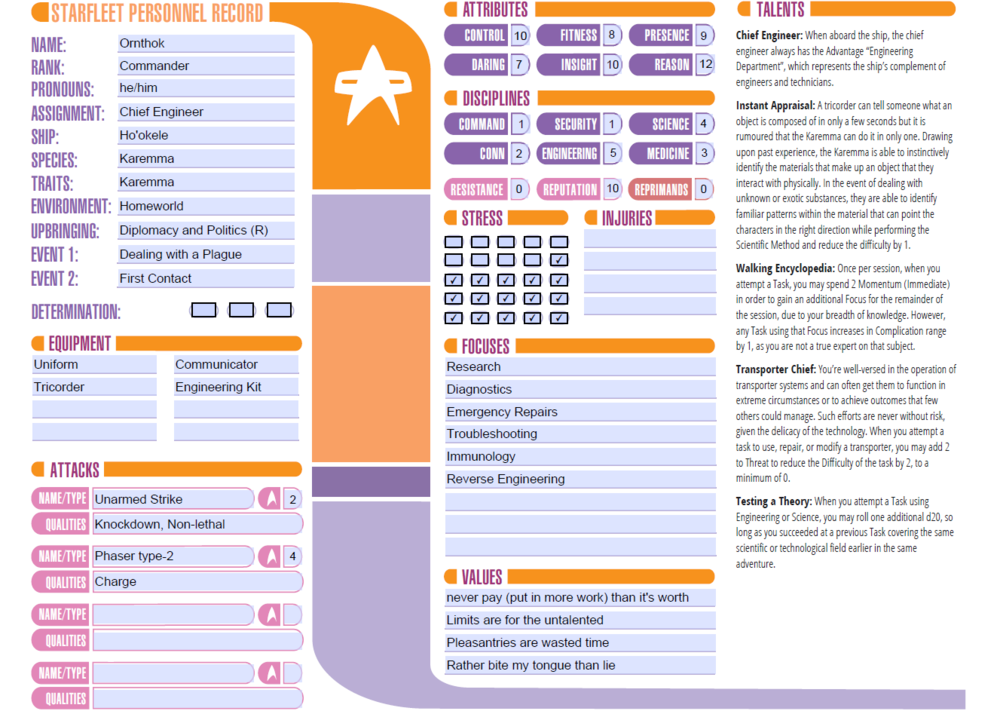STA A More Perfect Union/Ornthok
Useful Links
Recruitment Thread | OOC Thread | IC Thread | Current Game State | Game Wiki | Game Expectations | Mission Brief | Player Characters | Players' Ships | Trek Cannon & Game Timeline | The Borg: Unanswered Questions | Technology | STA 2d20 Online Character Generator | Stardate Calculator
Character Sheet[edit]
Background[edit]
Ornthok never mentions it (anymore) but he equates cost with time and thus is super protective of his private time. He also schedules his subordinates as if they were employees with rushes and other issues to consider. He has insulted more than one fresh young officer too eager to put in more work than was necessary. ("Have you no respect for yourself. You're young and attractive, go find some compatible species and make some social mistakes before you're needed.") His family don't understand the change at all. Ornthok has tried to explain that they provide for his needs freely, and all he has to do is explore and perfect the science he was paying too much to acquire anyway. It's an answer they accept logically, but his entire family seems to regard him as their strange "Federation child."
It's still classified and not installed on most vessels, but Ornthok has developed a Star Fleet specific cloaking device. Not one stolen from another race, or shifted to fit their vessels. It's one build around the nacelles that temporarily bend space around the ship as to not leave any trace particles that can be used to follow the vessel. What isn't classified is his paper with a terribly dry name that others call the Ornthok Theorem, which describes possible future uses of bent space outside of travel and warfare. It's considered groundbreaking work with other engineers trying to create the sorts of machines that will let the next generation transform his math into reality. This has given him a stellar reputation for theoretical engineering, but no real respect for what he can do on a manned ship during missions.
